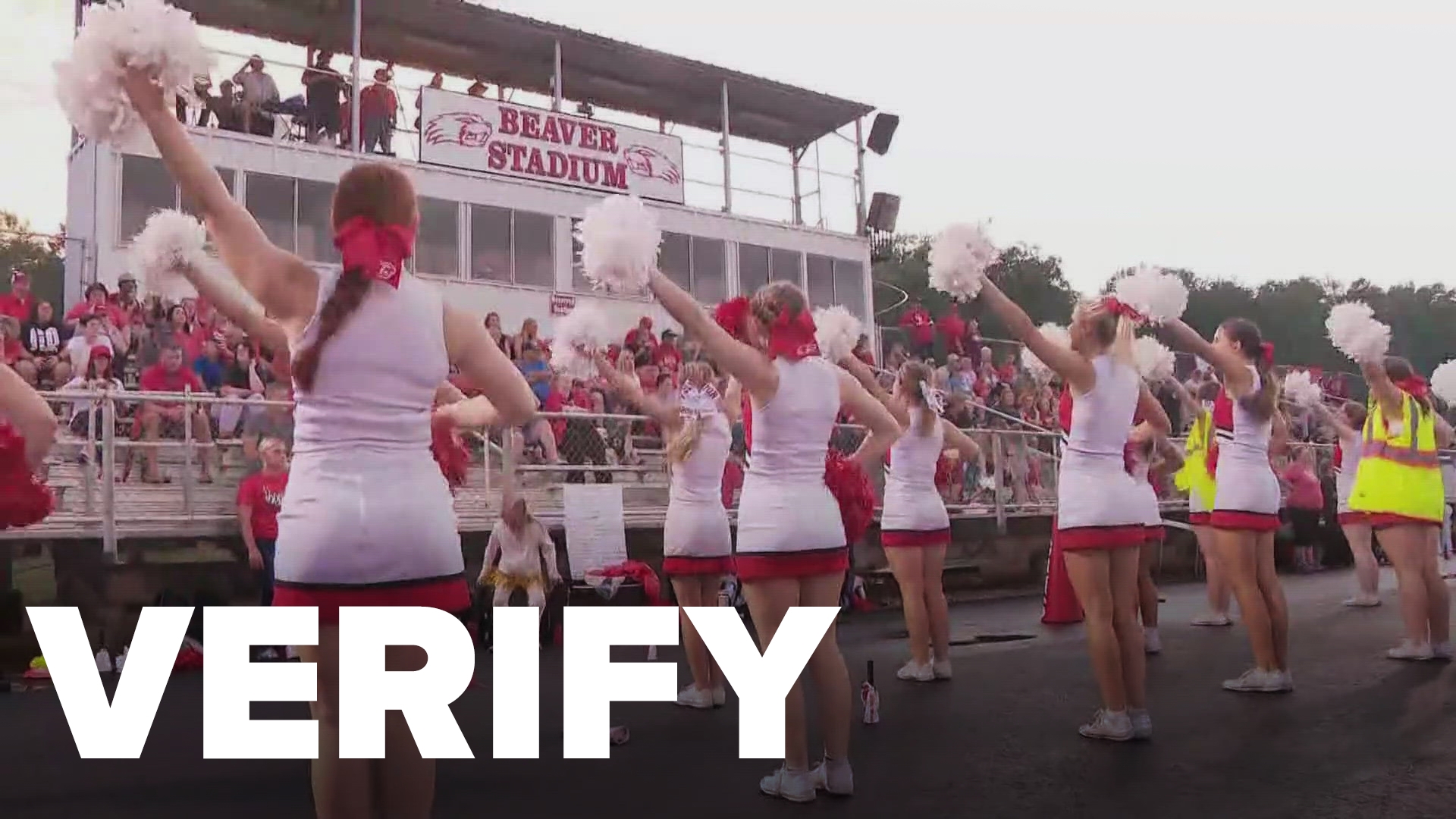LITTLE ROCK, Ark. — The old saying, “nobody is perfect," has stood the test of time for a reason.
It applies to life in general, and in the field of sports. Now, we're setting the record straight on another time-honored tradition seen in Arkansas high school and junior high football games.
On Friday nights in fall, communities across Arkansas gather in the stands to cheer on their favorite teams. Stadiums both big and small come alive with bright lights illuminating the football field, and the sounds of the band fill the air with anticipation.
However, once the game reaches halftime, the scoreboard will determine what happens next.
It turns out, that there are official guidelines on the "mercy rule'"when one team is clearly outplaying another.
Using these sources, the Arkansas Activity Association, and the National Federation of High Schools, we found out that the mercy rule, also called "The Sportsmanship Rule” is put into place when one team has a lead of 35 points or more by halftime, or at any point in the second half.
Bobby Swofford, with the AAA, said it is a recognized part of football, and other team sports, that was first adopted by the NFHS and later voted into the AAA handbook.
“Sometimes things don't go your way. Maybe you didn't have the proper game plan. Maybe the team's better than you are, but we don't want to sit there and dwell on it," Swofford explained.
Once the mercy rule begins, the clock runs continuously in the second half, only stopping for touchdown and timeouts. The point is to end the game sooner, rather than later.
As a former Arkansas athlete himself, Swofford believes the 35-point number is fair, and that the average of five possessions it would take the losing team to come back, is unlikely, even in the best of turnarounds.
He pointed out that while second or third string players might not get time to play, it's better to keep all players from potentially getting hurt.
“It also reduces a lot of injury, because if you think about it, you've got a team who is significantly better, and oftentimes, if you're going to get a mercy rule, that's going to be the case. That means their players may be bigger, faster, stronger," Swofford said. "That's going to limit the amount of injury, or the potential for injury, against those teams who may not be up to that level as of yet. They're going to get there, but they're not there yet.”
Schools in Arkansas, affiliated with the AAA, must abide by the mercy rule. According to Swofford, those schools make up roughly 99% of districts at the junior high and high school level.
As for teams that come from out of state to play in Arkansas, rules for the game are determined by the local host, so the mercy rule is one of them.

